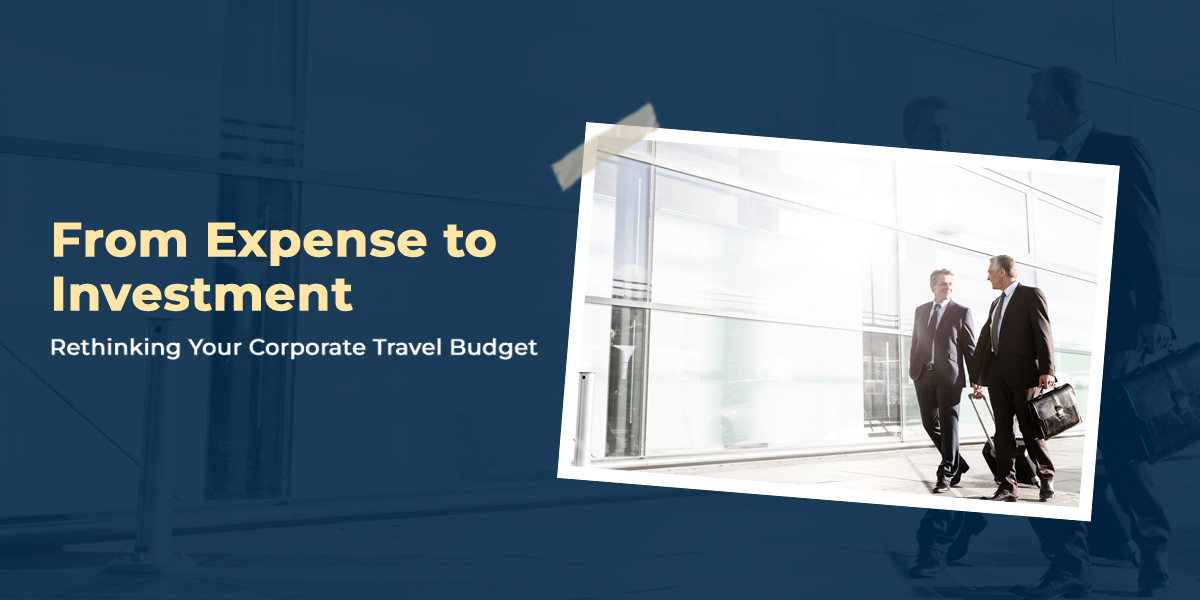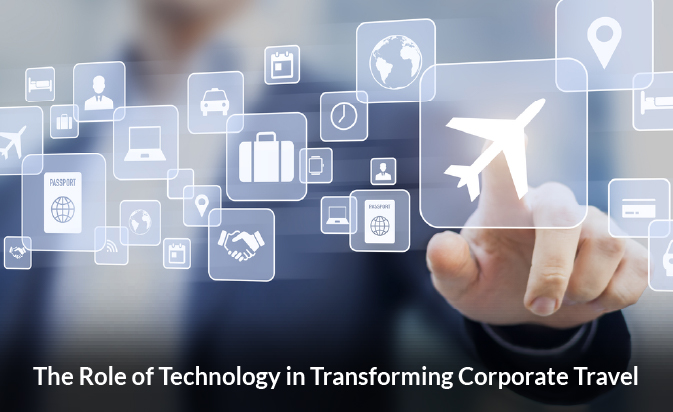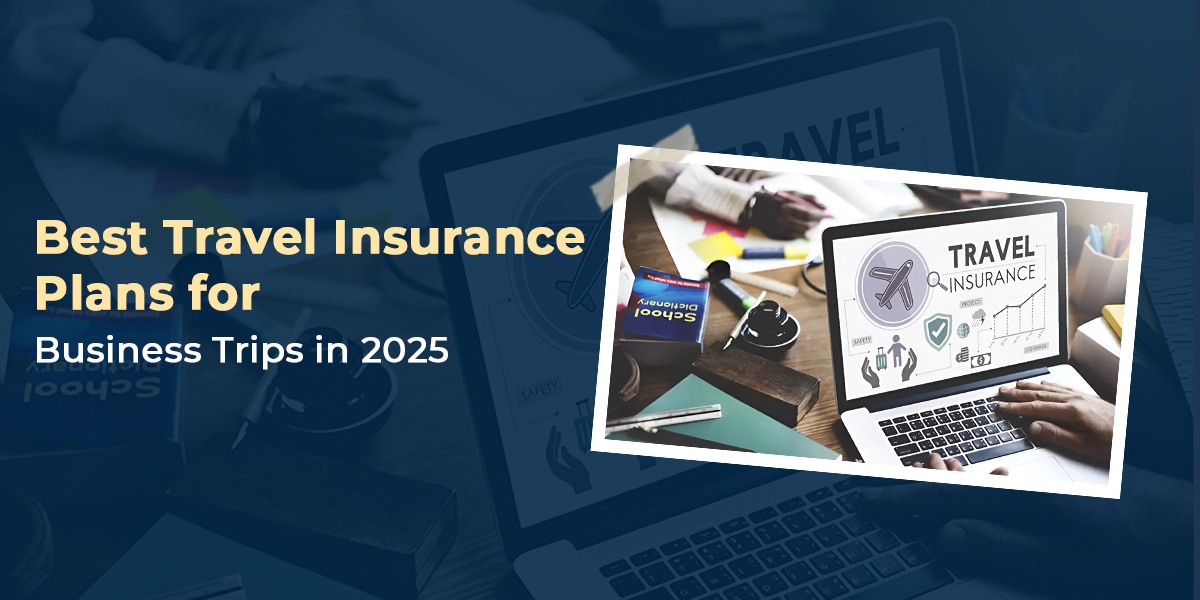What if you were able to change your travel budget for business to an investment possibility instead of a cost center?
In the process of growing businesses, you must reevaluate how travel is a part of the bigger picture and how it will yield tangible results. This blog explores the possibilities of rethinking your company's budget for travel to make it an engine for business growth.
View Corporate Travel as an Investment
Most companies see the cost of travel as an expense for line items. However, successful companies understand that well-managed travel has the potential to provide tangible returns. Instead of viewing corporate travel as simply a financial responsibility, now is the time to alter your perspective. It is a great opportunity to grow and build relationships, as well as brand development.
There are three main reasons business travel costs are more than just an expense.
Deal-making: Meetings in person can help you seal deals more quickly than remote discussions.
Networking: Participating in events, conferences, or customer meetings provides employees with the chance to meet industry leaders.
Talent Retention: The retention of talent by providing the option of travel as part and parcel of an employee's job will increase job satisfaction and boost morale.
Aligning Travel Goals with Business Objectives
Corporate travel shouldn't be conducted as a separate entity from the larger corporate goals. The travel plan must align with your business's objectives. It doesn't matter if it's expanding to new areas, making funding, or creating collaborations; travel plays a crucial role in achieving these goals.
Here are some ways to align travel and the business plan:
Define Objectives for Each Trip: Each visit should be guided by clearly defined goals that match the overall strategy of the company.
Monitor ROI: Assess the value of investment in travel by looking at how it impacts your organization's overall performance.
Leverage Technology: Utilize the data analysis and travel management platforms to detect trends and make educated decisions regarding future travel.
Optimizing Corporate Travel for Maximum ROI
Knowing the real ROI of business travel takes more than just a superficial analysis of the costs. To optimize your spending, you must determine the areas where value is created as well as where there is waste. It could mean rethinking the way you select hotels and flights, as well as dining choices.
Below are the ways to optimize the budget:
Negotiating Corporate Rates: Partnering with airlines and hotels can provide better rates and rewards for loyalty.
Streamlining Travel Approvals: Streamline approval of travel to make quick, strategically-based decisions.
Utilizing the Travel Management Platforms: Centralize travel scheduling and track expenses using digital platforms to keep the budget in control and increase savings.
Empowering Employees to Make Investment-Minded Travel Decisions
Employees play an essential part in turning corporate travel from an expense to an investment. By giving employees more power over how and when to travel, you give control back over costs to them and create greater efficiency overall.
Encourage employee engagement by:
Corporate Travel Policies: Develop policies that can balance the cost and ease of use to make sure employees are satisfied and not overspending.
Training on Cost-Effective Travel: Inform employees about travel hacks such as booking ahead by using rewards programs and choosing hotels with mid-tier amenities at a great price.
Incentivizing Smart Choices: Give rewards to employees who make smart decision-making regarding travel while still delivering results for business goals.
The Role of Technology in Transforming Corporate Travel
Innovations in travel technology have transformed how we travel and provided organizations with tools that make travel simpler and more efficient. Platforms for managing travel at work with AI-powered assistants and predictive analytics can aid your business in monitoring expenses, making savings, and streamlining the overall journey.
The benefits of using technology in corporate travel are:
Predictive Analytics: Utilize information from your previous travels to forecast future trends in travel and help you set a better budget.
Mobile Travel Apps: Enable employees to make travel reservations as well as manage itineraries and track expenses on the go using these convenient apps.
Real-Time Tracking of Expenses: Automate your expense tracking and integrate it with your company's accounting software to save both time and ensure compliance.
Evaluating the ROI of Corporate Travel
The measurement of ROI for corporate travel involves a mix of quantitative and qualitative analysis. This isn't just about the money saved, but how the travel experience affects performance, customer relations, as well as your bottom line.
Determine the ROI of travel for your company by:
Customer Satisfaction Metrics: Did personal sessions result in better relationships with customers?
Revenue Growth: Are you able to identify specific gains in revenue from business travel? These could come from deals, sales, and expansions.
Employee Productivity: Examine whether travel affects the productivity and engagement of employees. Happier employees are more productive, and providing them with opportunities to travel may be one of the factors that influence retention.
Strategies for Future-Focused Corporate Travel
In the post-pandemic era, the corporate travel industry will keep evolving. It means businesses must plan their budgets for travel more carefully than they ever have. By prioritizing trips with high value and focusing on the most important markets, as well as embracing digital alternatives when appropriate, you will make the most of your travel budget.
Strategies for the future of travel planning for business:
Focus on High-Value Destinations: Choose destinations or customers that have the most potential for return on investment.
Hybrid Travel: Mix the business and leisure aspects of travel to give employees a work-life balance and maximize the value of their trip.
Sustainable Travel: Consider investing in greener travel choices because sustainability has become an essential aspect for many companies.
Think corporate travel as a growth enabler!!!
When you change your perception to view travel as an investment instead of viewing it as a source of expense, your business can gain greater benefits, enhance relationships, and achieve significant expansion. Making smarter choices for your travel plans that align trips with your goals for business and using technologies are the key actions to turn your money spent on travel into a real asset to your company.















